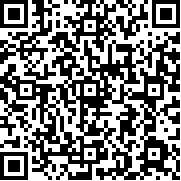
公眾號:mywangxiao
及時發(fā)布考試資訊
分享考試技巧、復(fù)習(xí)經(jīng)驗

新浪微博 @wangxiaocn關(guān)注微博
聯(lián)系方式 400-18-8000
為了幫助考生更好的備考英語專業(yè)八級考試,中大網(wǎng)校英語專業(yè)八級考試網(wǎng)特為考生整理了2015年專八考試真題演練,希望考生可以順利通過2015年英語專業(yè)八級考試!
Passage Ten (The Importance of Independent Thinking)
No one can be a great thinker who does not realize that as a thinker it is her first duty to follow her intellect to whatever conclusions it may lead. Truth gains more even by the errors of one who with due study and preparation, thinks for himself, than by the true opinions of those who only hold them because they do not suffer themselves to think. No that it is solely, of chiefly, to form great thinkers that freedom of thinking is required. One the contrary, it is as much or even more indispensable to enable average human beings to attain the mental stature which they are capable of. There have been and many again be great individual thinkers in a general atmosphere of mental slavery. But there never has been, nor ever will be, in that atmosphere an intellectually active people. Where any of heterodox speculation was for a time suspended, where there is a tacit convention that principles are not to be disputed: where the discussion of the greatest questions which can occupy humanity is considered to be closed, we cannot hope to find that generally high scale of mental activity which has made some periods of history so remarkable. Never when controversy avoided the subjects which are large and important enough to kindle enthusiasm was the mind of a people stirred up fro9m its foundation and the impulse given which raised even persons of the most ordinary intellect to something of the dignity of thinking beings.
She who knows only her own side of the case knows little of that. Her reasons may be food, and no one may have been able to refute them. But if she s equally unable to refute the reasons of the opposite side; if she does not so much as know what they are, she has no ground for preferring either opinion. The rational position for her would be suspension of judgment, and unless she contents herself with that, she is either led by authority, or adopts, like the generality of the world the side to which she feels the most inclination. Nor is it enough that she should heat the arguments of adversaries from her own teachers, presented as they state them, and accompanied by what they offer as refutations, That is not the way to do justice to the arguments, or bring them into real contact with her own mind. She must be able to hear them form persons who actually believe them; who defend them in earnest, and do their very utmost for them. She must know them in their most plausible and persuasive form; she must feel the whole force of the difficulty which the true view of the subject has to encounter and dispose of; else she will never really possess herself of the portion of truth which meets and removes that difficulty. Ninety-nine in a hundred of what are called educated persons are in this condition; even of those who can argue fluently for their opinions. Their conclusion may be true, but it might be false for anything they know; they have never thrown themselves into the mental position of those who think differently form them and considered what such persons may have to say; and consequently they do not, in any proper sense of the word, know the doctrines which they themselves profess.
1. The best title for this passage is
[A] The Age of Reason [B] The need for Independent Thinking
[C] The Value of Reason [D] Stirring People’s Minds
2. According to the author, it is always advisable to
[A] have opinions which cannot be refuted.
[B] adopt the point of view to which one feels the most inclination.
[C] be acquainted with the arguments favoring the point of view with which one disagrees,
[D] suspend heterodox speculation in favor of doctrinaire approaches.
3. According to the author, in a great period such as the Renaissance we may expect to find
[A] acceptance of truth [B] controversy over principles
[C] inordinate enthusiasm [D] a dread of heterodox speculation
4. According to the author, the person who holds orthodox beliefs without examination may be described in all of the following ways EXCEPT as
[A] enslaved by tradition [B] less than fully rational
[C] determinded on controversy [D] having a closed mind
5. It can be inferred from the passage that the author would be most likely to agree with which of the following statements
[A] A truly great thinker makes no mistakes.
[B] Periods of intellectual achievement are periods of unorthodox reflection,
[C] The refutation of accepted ideas can best be provided by one’s own teachers.
[D] excessive controversy prevents clear thinking,
編輯推薦:
更多關(guān)注:英語專業(yè)八級報考指南 合格標準 歷年真題 免費短信提醒>>>
(責任編輯:hhy)